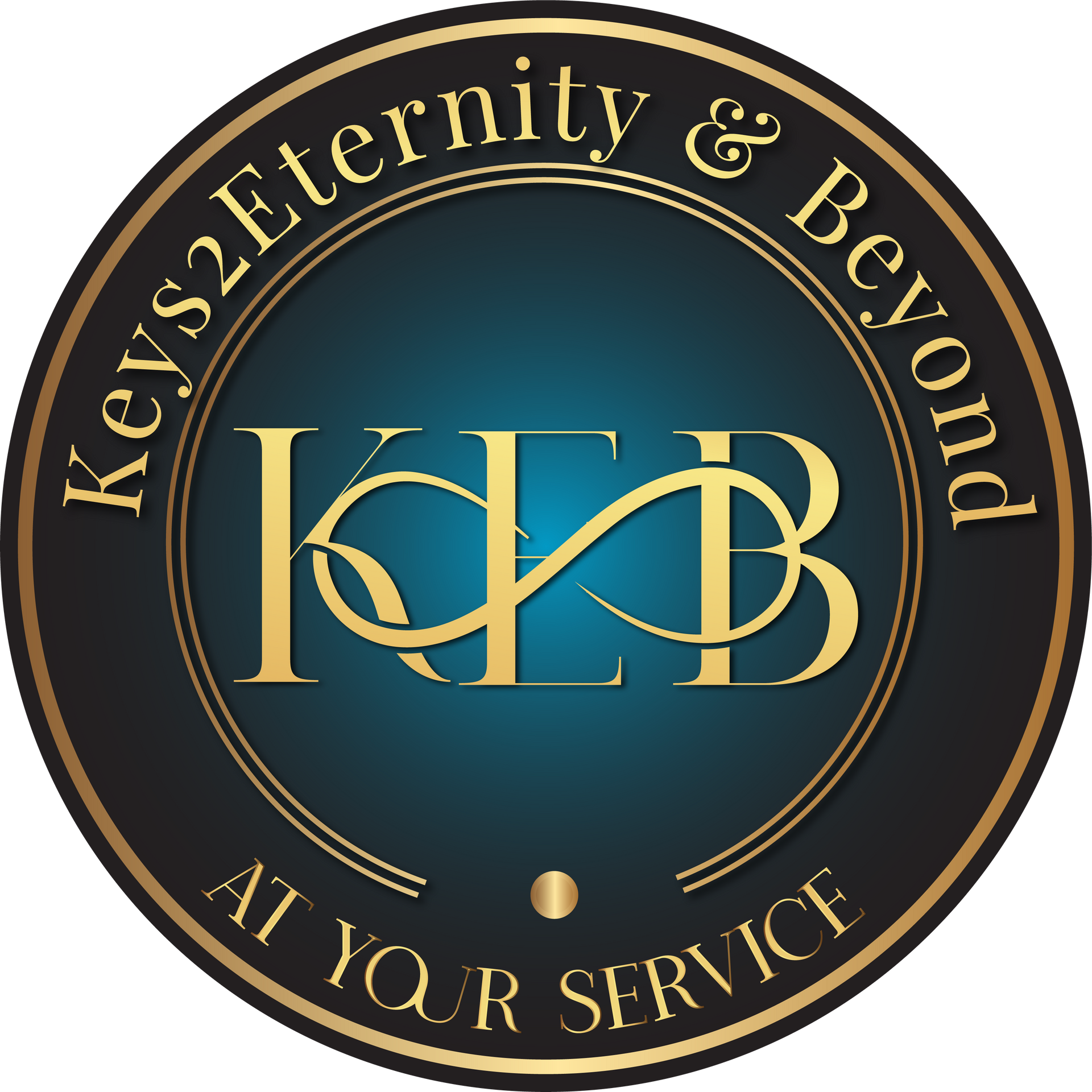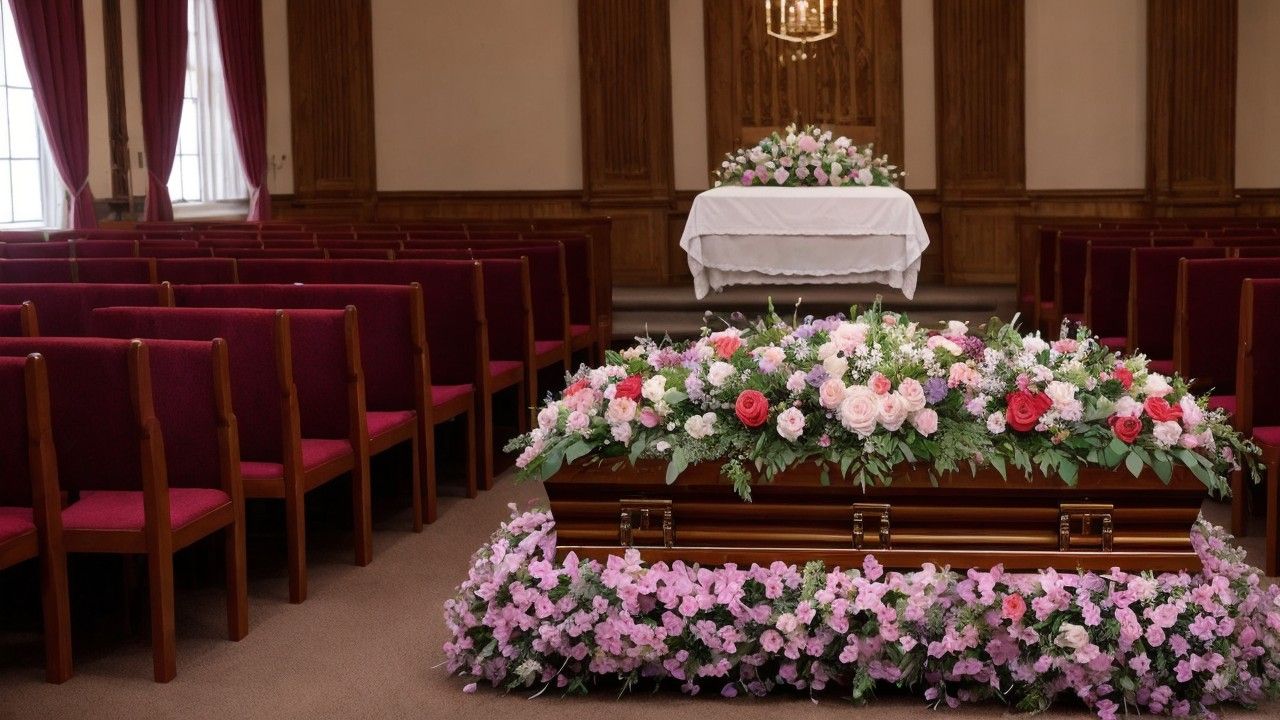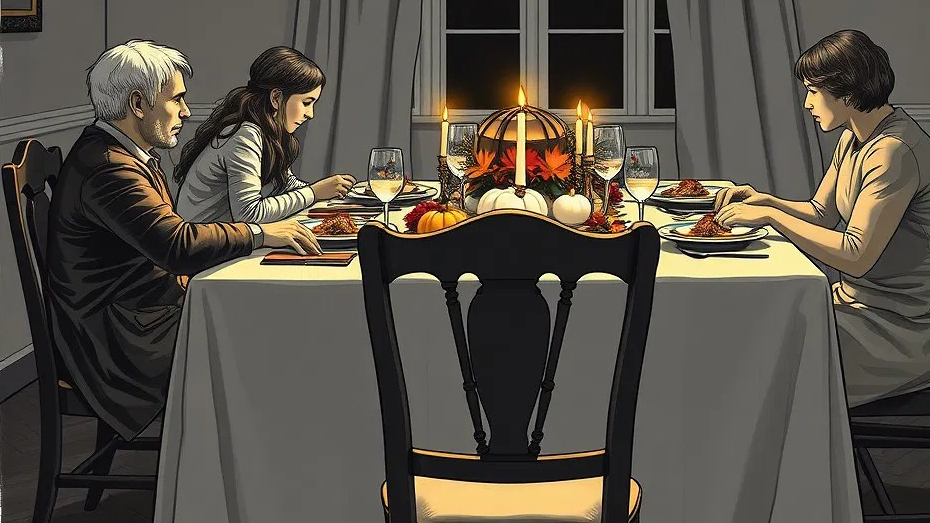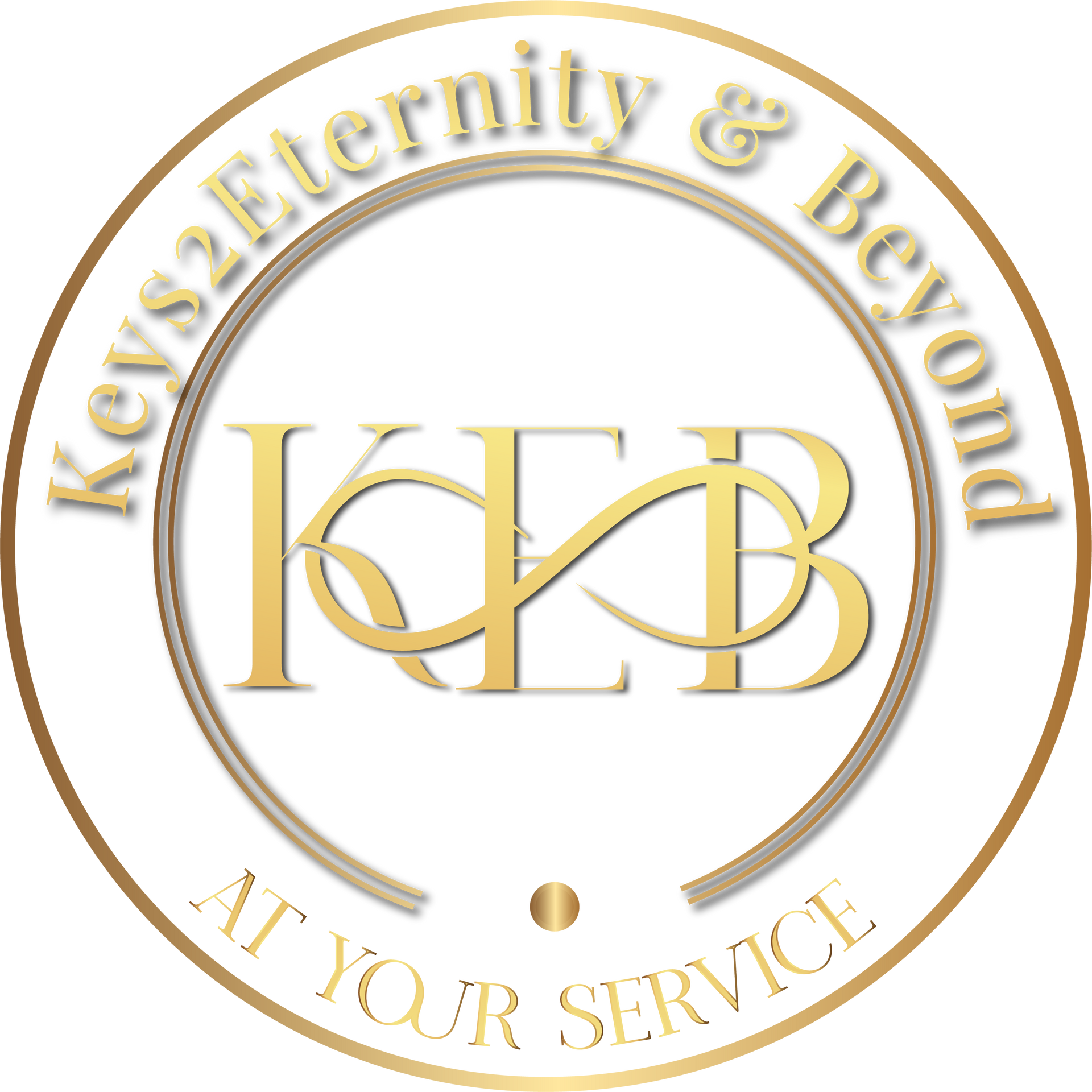Find a Trusted Proivder
Helpful Links

Business Hours
- Mon - Fri
- -
- Sat - Sun
- Closed

Share This Article
Funerals can be unexpectedly costly, but honoring your loved one shouldn’t drain your finances. Uncover practical tips to plan a meaningful goodbye with dignity.
Funerals are a complex and often sensitive topic, especially when it comes to understanding the costs involved. With all the emotions and decisions that accompany saying goodbye to a loved one, handling with the financial aspects can add unnecessary stress to an already difficult time.
Yet, understanding the true costs of funerals—and how to make cost-effective choices without sacrificing dignity or quality—can help you and your family feel more in control of the process. This guide offers a practical look at what drives funeral expenses, along with options to help you get the most value from these arrangements.
Funerals Are Generally Expensive. Here's Why
Once a funeral home opens its doors to receive your loved one and serve you throughout the duration of their stay right up to the day of the funeral, you'll receive a price list. Since funeral homes are for-profit enterprises, the bulk of what's charged on the price list goes to profitable items like casket, vault and hearse. Most caskets costs upwards of $800-$2000 same as vaults.
Furthermore, the cost of taking care of and preserving a body is, naturally, on the higher side. And it makes sense because not everyone can manage the specialized work that funeral directors and staff do every day, every hour, every week.
Not everyone has the grace and calling to transport a dead body, get up in the middle of the night to pick up someone off a highway, sew a badly mutilated body, embalm them to a presentable state, hold visitations, apply for death certificates, and handle all the complicated duties that funeral homes do.
Not everyone can handle stillborn bodies or bodies older than 100 years. Not everyone can deal with all manner of deaths caused by disasters, natural causes, strange aliments, homicides, suicides and accidents. Not everyone is willing to miss important holidays and special anniversaries. Not everyone is available 24/7 to answer from families.
So, yes, that dedication and sacrifice come at a price.
Now, Let's Understand the True Costs of Funerals
In the United States, the average cost of a funeral can vary significantly, but according to the National Funeral Directors Association (NFDA), it’s not uncommon for a traditional burial service to attract between $8,000 and $12,000 in expenses. However, that price range can escalate quickly depending on location, choice of service, and specific items like caskets, memorial items, and transportation.
To give a clearer breakdown, here’s a general overview of where the costs come from in a typical funeral:
Funeral Home Services
This includes the basic service fee, which often covers staff time, paperwork, planning, and general administrative tasks. The service fee can average from $1,500 to $2,500 depending on the funeral home.
Casket and Vault
Caskets are often the most expensive single item in a traditional funeral, with a wide range in pricing. While a simple, affordable casket may start around $1,000, more elaborate options can cost upwards of $10,000 or more. In some cases, caskets made from wood, bronze, or precious materials can drive up the cost.
Vault or Grave Liner
Many cemeteries require a vault or grave liner, which helps support the ground around the grave. These can cost between $900 and $3,000 on average.
Embalming and Body Preparation
If a viewing or open-casket service is planned, embalming is often recommended. Embalming and other preparation services (such as cosmetics, hair styling, and dressing) typically add another $500 to $1,000 to the bill.
Other Services
This can include transportation costs, ceremony officiants, florists, musicians, printed programs, and other optional but meaningful services. All of these additional services can add a few hundred to several thousand dollars, depending on the level of detail and customization desired.
What Drives Funeral Costs?
Several factors play a role in the overall cost of a funeral, some of which are simply practical while others are the result of tradition or family expectations.
The Type of Service
Traditional funerals, which often include a viewing, a formal ceremony, and a burial, tend to be more expensive due to the services involved. In contrast, direct cremations, which skip embalming and viewings, are more budget-friendly. According to the NFDA, the median cost of a direct cremation is about $2,000.
Location
Funeral costs can vary widely by location. For example, a funeral in a major metropolitan area may be significantly more expensive than one in a rural setting due to higher land costs, facility fees, and general expenses associated with larger cities.
Casket Choice
The type of casket is often a big driver of cost. Funeral homes usually offer caskets at various price points, but families may feel pressure to choose a higher-end option. In reality, a simpler casket can be just as dignified, and funeral homes are required by law to let you use a casket from another source if that's what you desire or can afford.
Add-On Services
From printed memorial cards to professional videography, many funeral homes offer a variety of additional services, which can add to the final bill. While some of these extras can make the ceremony more meaningful, it’s important to remember that they’re optional, and families are free to choose affordable options that's within their budget.
How to Get the Most Value from Funeral Arrangements
While funerals are often costly, there are ways to get around these expenses mindfully without compromising on quality or meaning. Here are some practical ways to reduce costs and get the most value out of your loved one's funeral arrangement.
1. Compare Prices and Services at Different Funeral Homes
Under the Federal Trade Commission’s (FTC) Funeral Rule, funeral homes are required to provide a written itemized price list upon request, whether in person or over the phone. Comparing prices can be especially helpful ilf you’re trying to keep costs down.
Consider reaching out to multiple funeral homes for quotes on basic services, as prices can vary considerably. A few hundred dollars’ difference in service fees, or even casket prices, can add up, so taking the time to compare options may help reduce costs significantly.
2. Consider Cremation or Direct Burial
For families who are open to alternatives, both direct cremation and direct burial are lower-cost options. A direct burial skips the embalming and viewing, going straight to the burial itself, and can be conducted for around $3,000. This is a respectful and straightforward option for those who prefer simplicity.
Cremation is another increasingly popular choice, accounting for nearly 61.9 % of all U.S. funerals in recent years, according to the NFDA. For families who choose cremation, a memorial service can still be held afterward, with ashes placed in an urn or scattered in a meaningful place, which can provide flexibility and save on certain expenses.
3. Rent a Casket or Use a Simple Model
Caskets are often the most expensive items, but there are budget-friendly options to consider. Renting a casket for a viewing or service is a common practice, and this allows families to save on the cost of buying a higher-end casket. The deceased is placed in a simple, removable container inside the rental casket, which can be removed for cremation or burial.
Alternatively,
ordering directly from the casket company can save you a few hundred bucks. One funeral director reportedly admitted that if they buy a casket for $350, they'll sell it for $950 or even $1000+. It should come as a no surprise since they're in the business to make profits. Buying directly from a casket manufacturer is a cost saving option worth considering and as we mentioned earlier, you have the right to purchase a casket from another source.
4. Opt for a Simple, Private Service
Holding a simple, private ceremony can offer just as much value as a more elaborate service and often provides a more intimate setting for family and close friends to say goodbye. Many families often choose this route, followed by a larger celebration of life or memorial at a later date.
Private services allow you to focus on meaningful connections and shared memories without the pressure of expensive arrangements, and gives you the opportunity to create a warm, personal farewell that doesn’t rely on traditional formality.
5. Purchase Only the Services You Need
Funeral homes often provide a variety of packages that bundle services together, but you’re not required to choose a package. You have the right to purchase items and services individually, which may be more cost-effective.
For example, if you’re holding the service at a place of worship, you may not need to pay for a funeral home chapel. Similarly, if friends and family can assist with transportation, you can avoid additional transportation fees. Being selective with services can help you stay within your budget without sacrificing a meaningful farewell.
6. Consider Low-Cost Alternatives to Traditional Burial
In recent years, alternatives like green burials and water cremation (alkaline hydrolysis) have emerged as lower-cost, environmentally friendly options. Green burials, which avoid embalming chemicals and use biodegradable caskets, can significantly reduce costs while honoring the environment. Direct cremations have since risen to 61.9% according to NFDA with cost-effectiveness being the primary driving factor.
As
green and alternative options gain popularity, more funeral homes are offering them. If you’re interested in these alternatives, check with your local aftercare providers to see what options are available in your area.
Pre-Planning Can Help You Avoid Last-Minute Costs
If you’re reading this while planning arrangements for a loved one, you may find it helpful to explore pre-planning options for yourself or other family members. Many funeral homes offer pre-planning services that allow individuals to arrange for their funeral in advance, often at a lower cost.
Pre-planning a
funeral allows you to set aside funds, lock in prices, and make decisions that reflect your values without the added pressure of time. According to the AARP, pre-planning can help reduce the burden on surviving family members and may help prevent overspending at a time when decision-making can be clouded by grief.
Final Thoughts
While the costs of a funeral can seem overwhelming, understanding what drives these expenses and exploring cost-effective options can make a difference. Funerals are a time to honor and remember a loved one’s life, and there are many ways to do this meaningfully without overextending financially.
When planning, remember that being mindful of costs doesn’t diminish the respect or love we show; instead, it helps create a service that’s both heartfelt and practical. Still,
planning a pre-need funeral
allows you to go for what you want and at your own costs without pressure. You can make arrangements with a
pre-need planning professional,
negotiate with a funeral home,
order a custom casket
from a manufacturer, and get just about everything right on your own terms.
Fortunately, Keys2Eternity is here to make the process of connecting with and contacting these
essential service providers easier and more convenient. Simply visit our directory and contact one near you today. Whether for yourself or a loved one, preparing early is one of the best decisions you can make. We guarantee you'll save a lot of money along the way and enjoy peace of mind afterwards.
Related Articles
Related Articles





